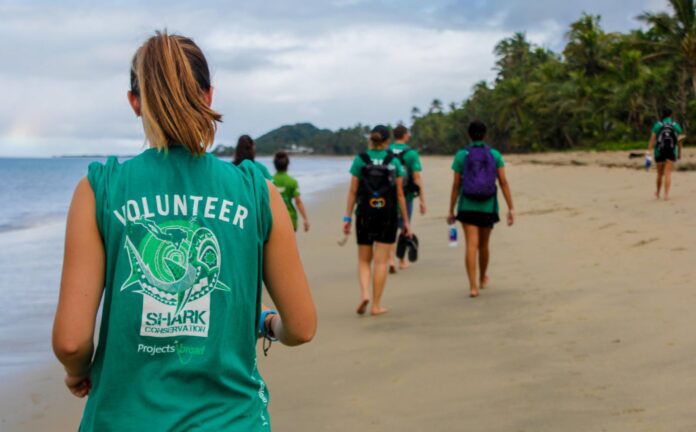In today’s interconnected world, volunteering abroad has become more than just an opportunity to help others—it is a pathway to personal development, cultural awareness, and meaningful experiences. Traveling to a foreign country to contribute to community projects allows individuals to step outside their comfort zones, engage with diverse communities, and gain unique perspectives on global challenges. This article explores the multiple benefits of Volunteer Abroad, including the development of cultural understanding, personal growth, professional skills, and long-lasting impact on both volunteers and the communities they serve.
Understanding Volunteering Abroad
Volunteering abroad involves participating in organized service projects in a country other than one’s own. These projects vary widely, covering areas such as education, healthcare, environmental conservation, community development, humanitarian aid, and animal welfare. Volunteers may work in schools, hospitals, orphanages, rural villages, wildlife reserves, or urban communities, depending on the nature of the program.
Programs are often structured to include training, guidance, and support for volunteers. Participants may receive orientation sessions about local customs, language basics, safety protocols, and project objectives. This preparation ensures that volunteers can contribute effectively while respecting the cultural context and ethical considerations of their host communities.
Cultural Awareness and Immersion
One of the most significant benefits of volunteering abroad is the exposure to different cultures. Immersing oneself in a foreign environment encourages understanding and appreciation of diverse traditions, languages, social norms, and values. Volunteers gain firsthand experience of the challenges and lifestyles of local communities, which fosters empathy and cross-cultural sensitivity.
Cultural immersion is not limited to observing differences; it involves active participation in local customs, festivals, and daily routines. Volunteers may share meals with host families, learn traditional crafts, or assist in community gatherings. Such experiences provide insights into local history, societal structures, and ways of thinking that cannot be obtained through books or documentaries alone.
This cultural awareness has broader implications for volunteers’ perspectives. Exposure to different ways of life challenges preconceived notions, encourages critical thinking, and cultivates open-mindedness. It allows individuals to appreciate global diversity and develop a nuanced understanding of social issues, which is essential in an increasingly globalized world.
Personal Growth and Self-Discovery
Volunteering abroad is a transformative experience that promotes personal growth. Being in an unfamiliar environment, often with limited resources, pushes individuals to adapt, problem-solve, and develop resilience. Facing challenges such as language barriers, cultural misunderstandings, or logistical difficulties strengthens confidence and fosters a sense of independence.
Moreover, volunteers often discover new interests, strengths, and passions while working on projects. Participating in teaching programs, health initiatives, or environmental conservation can reveal latent skills and inspire future career paths. Many volunteers report increased self-awareness and a deeper understanding of their values and priorities after completing an international service experience.
The process of giving and contributing also enhances emotional intelligence. Volunteers learn to communicate effectively, manage conflicts, collaborate with diverse teams, and respond empathetically to the needs of others. These soft skills are valuable in both personal and professional contexts and contribute to overall emotional well-being.
Developing Professional Skills
Volunteering abroad is not only an opportunity for personal growth but also a platform to develop professional skills. Individuals gain practical experience in areas such as project management, teamwork, leadership, problem-solving, and cross-cultural communication. These experiences are highly regarded by employers and can strengthen resumes and career prospects.
For students or early-career professionals, volunteering abroad provides exposure to real-world challenges and solutions in fields like education, healthcare, social work, and environmental conservation. Engaging with diverse communities and working in dynamic settings helps build adaptability and creative thinking—skills that are essential in today’s competitive job market.
Furthermore, volunteers often acquire language skills through immersion, enhancing their ability to communicate across cultural boundaries. Even basic proficiency in a new language can improve cognitive abilities, boost confidence, and increase employability.
Impact on Communities
Volunteering abroad is mutually beneficial, as it allows communities to receive much-needed support while volunteers gain enriching experiences. Projects are designed to address specific local needs, such as improving education quality, promoting health awareness, conserving natural resources, or providing infrastructure support.
By contributing time, skills, and resources, volunteers can make a tangible difference in the lives of community members. Educational projects, for example, can enhance literacy and learning opportunities for children, while healthcare initiatives can provide preventive care, health education, and assistance to vulnerable populations. Environmental projects, such as tree planting or wildlife protection, help preserve natural ecosystems and raise awareness about sustainability.
Collaboration with local stakeholders ensures that volunteer efforts are sustainable and culturally appropriate. Rather than imposing external solutions, volunteers work alongside communities to support ongoing initiatives, strengthen local capacity, and empower residents to take an active role in development efforts.
Challenges and How to Overcome Them
While volunteering abroad is rewarding, it comes with challenges. Cultural adjustment can be difficult, as volunteers may experience homesickness, language barriers, or differences in social norms. Adapting to new living conditions, dietary changes, or limited resources can also be demanding.
Preparation and mindset are key to overcoming these challenges. Researching the host country, understanding cultural expectations, learning basic language skills, and approaching experiences with flexibility and humility can help volunteers navigate potential difficulties. Support from program coordinators, mentors, and fellow volunteers also provides guidance and reassurance during the adjustment period.
Ethical Considerations and Responsible Volunteering
Responsible volunteering abroad requires ethical awareness and sensitivity to the needs of host communities. Volunteers must avoid creating dependency, imposing personal values, or taking roles that require professional expertise they do not possess. Programs that emphasize community collaboration, sustainability, and long-term impact are more effective and respectful.
Volunteers should also be mindful of cultural norms and traditions. Demonstrating respect for local customs, engaging in active listening, and building genuine relationships foster trust and mutual understanding. Ethical volunteering enhances the quality of service, strengthens community partnerships, and ensures that the experience is meaningful for both volunteers and recipients.
Building Lifelong Relationships
Volunteering abroad often leads to meaningful relationships with local community members, fellow volunteers, and program coordinators. These connections can last a lifetime, providing a global network of friends, mentors, and collaborators.
Interpersonal interactions in volunteer settings teach valuable lessons about teamwork, empathy, and collaboration. Volunteers learn to appreciate diverse perspectives, navigate differences constructively, and celebrate shared achievements. These experiences contribute to a sense of belonging and global citizenship, fostering a commitment to service and social responsibility.
Long-Term Benefits and Future Opportunities
The benefits of volunteering abroad extend beyond the immediate experience. Many volunteers develop a stronger sense of purpose, increased self-confidence, and a commitment to ongoing service. Exposure to global challenges often inspires individuals to pursue careers in international development, education, healthcare, environmental conservation, or social entrepreneurship.
Additionally, the skills, experiences, and cultural understanding gained through volunteering abroad enhance personal and professional growth. Volunteers return with a broader worldview, increased adaptability, and the ability to work effectively in multicultural environments. These qualities are highly valued in a world that is increasingly interconnected and diverse.
Conclusion – Transformative Experiences Through Service
Volunteering abroad is a unique opportunity that combines service, learning, and personal growth. By engaging in community projects, individuals develop cultural awareness, enhance professional skills, and foster personal resilience. They gain a deeper understanding of global issues, build meaningful relationships, and contribute to sustainable development in host communities.
The experience encourages empathy, open-mindedness, and a sense of responsibility toward the world. Volunteers not only make a positive impact on the lives of others but also undergo profound personal transformation, discovering new strengths, perspectives, and aspirations.
Ultimately, volunteering abroad represents a journey of mutual benefit—one in which communities receive valuable support, and volunteers gain experiences that shape their worldview, personal growth, and future opportunities. It is an enriching pathway that demonstrates how service, learning, and cultural exchange can come together to create lasting change and meaningful life experiences.










